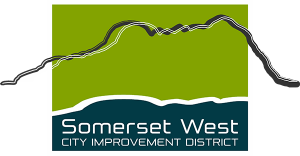In the last few months, we’ve been working hard on our most important goals all to make our community a safe, rich urban environment where our community can thrive.
Here is what we have achieved so far:
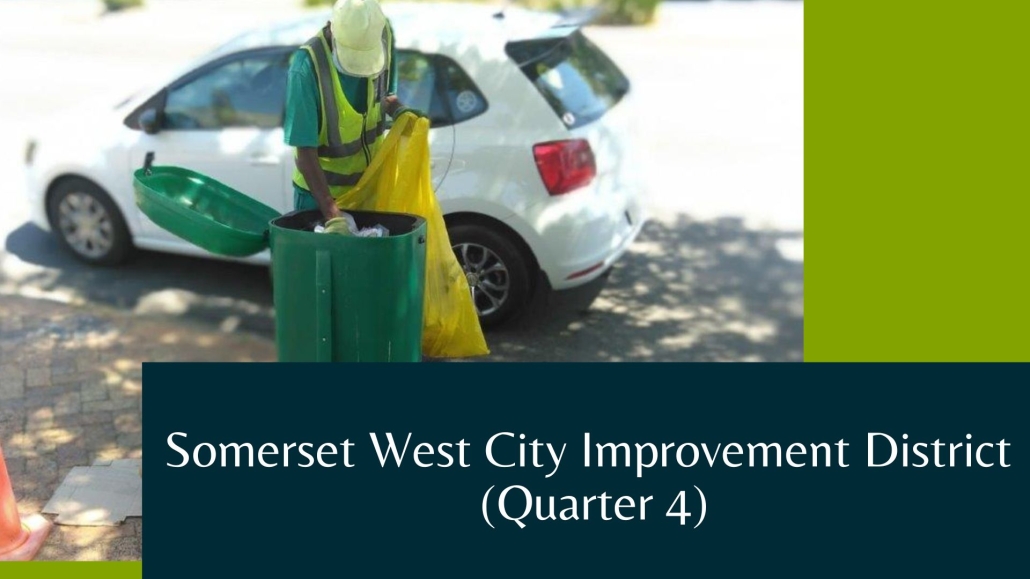
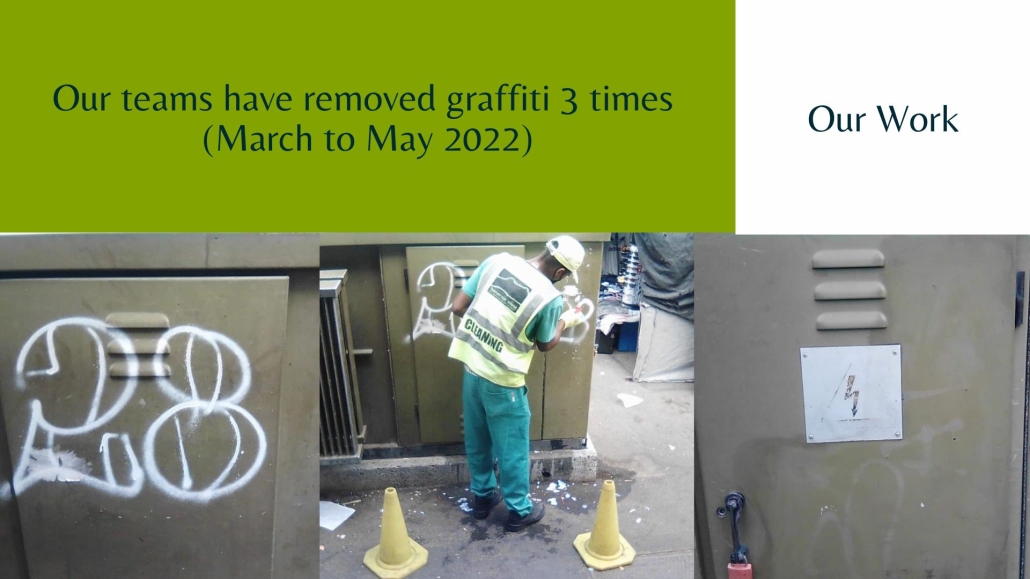
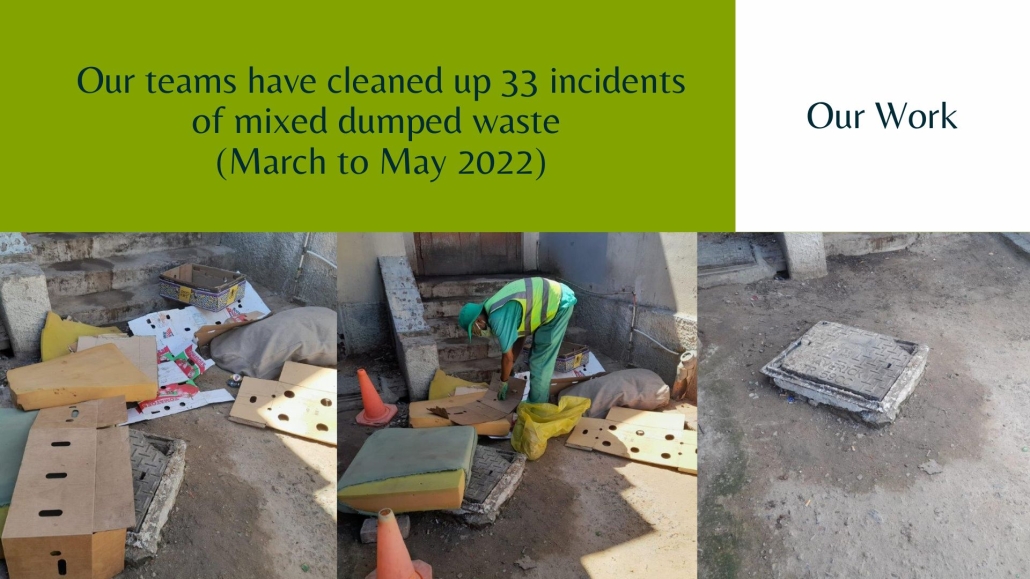
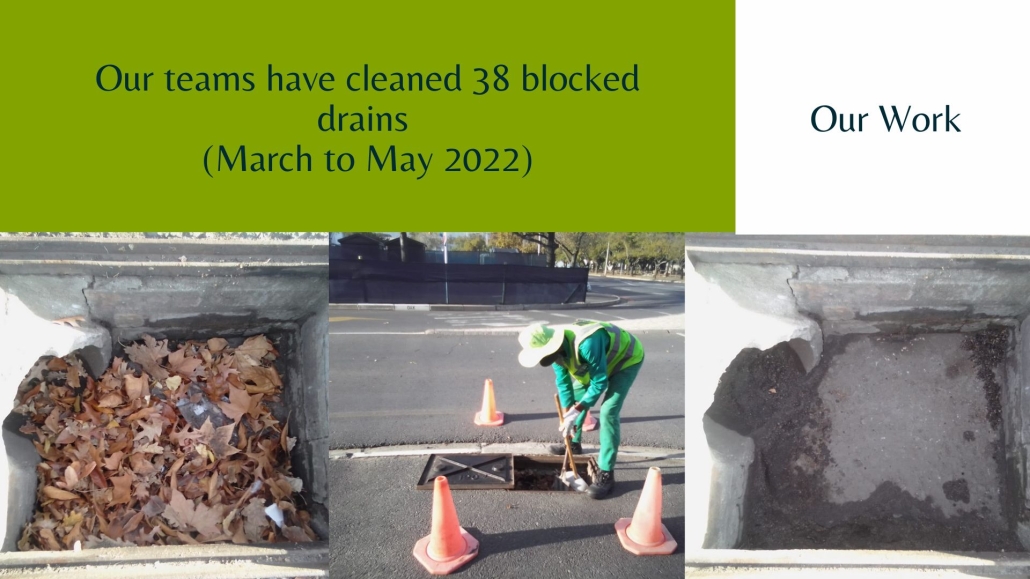
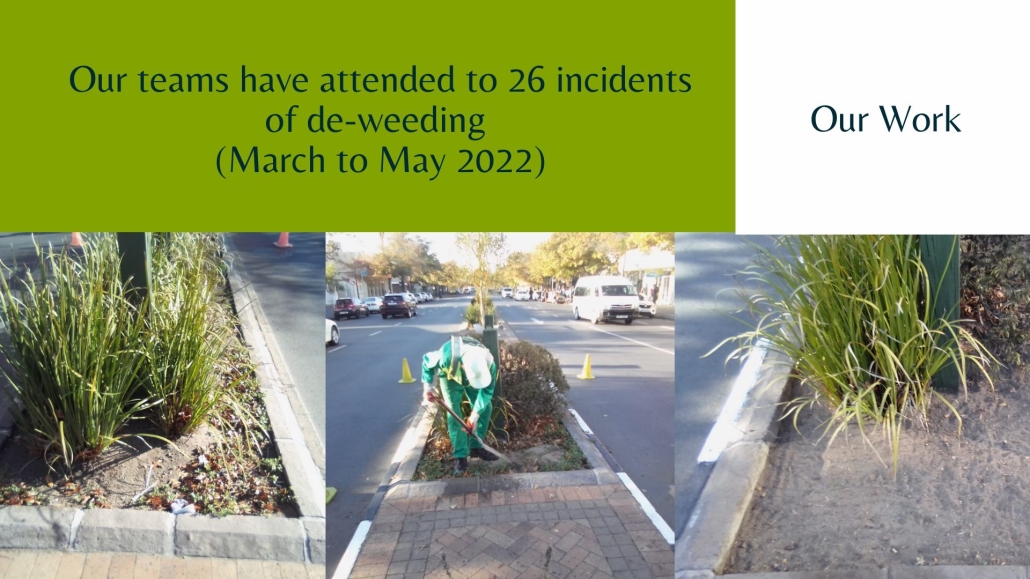
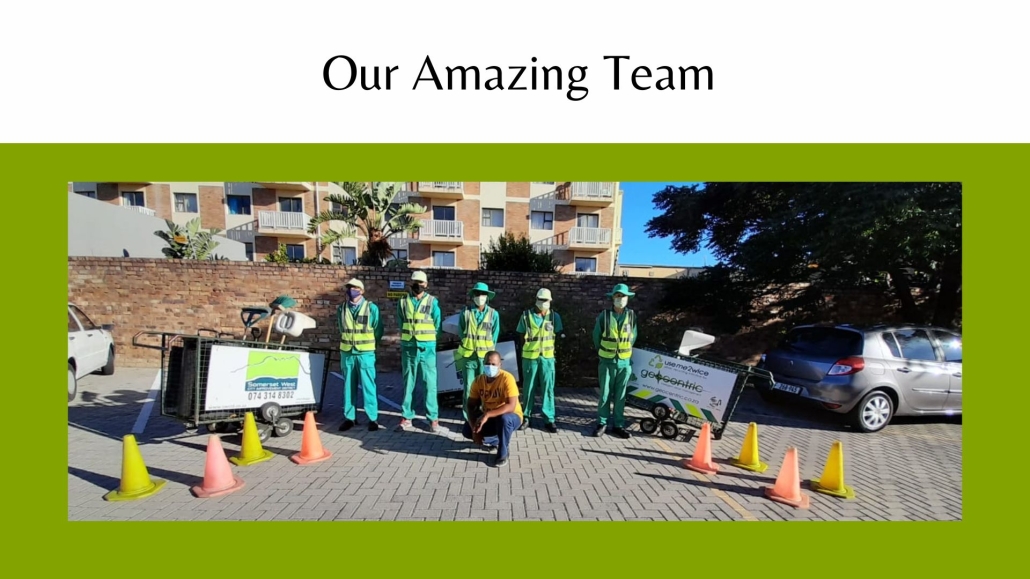
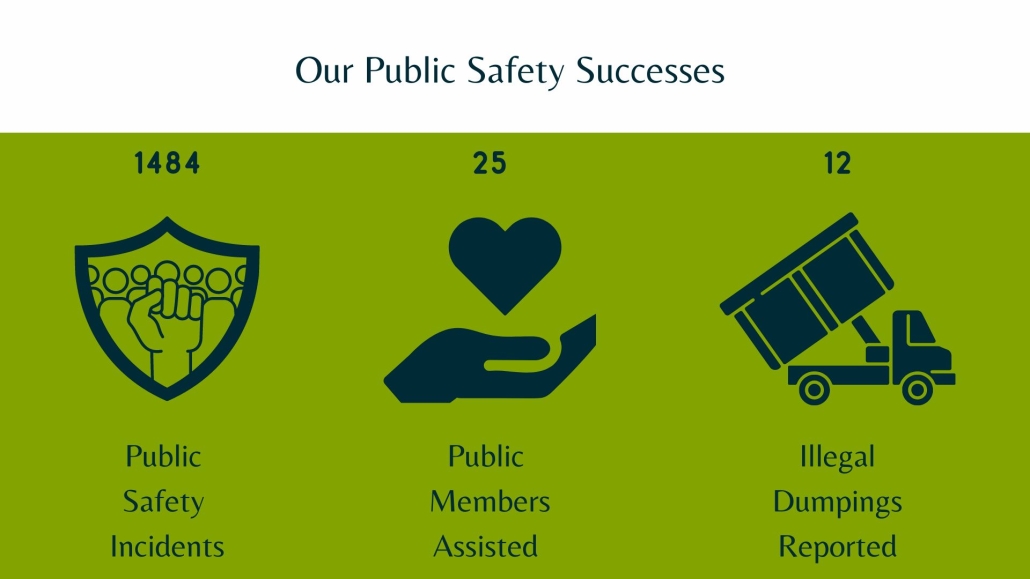
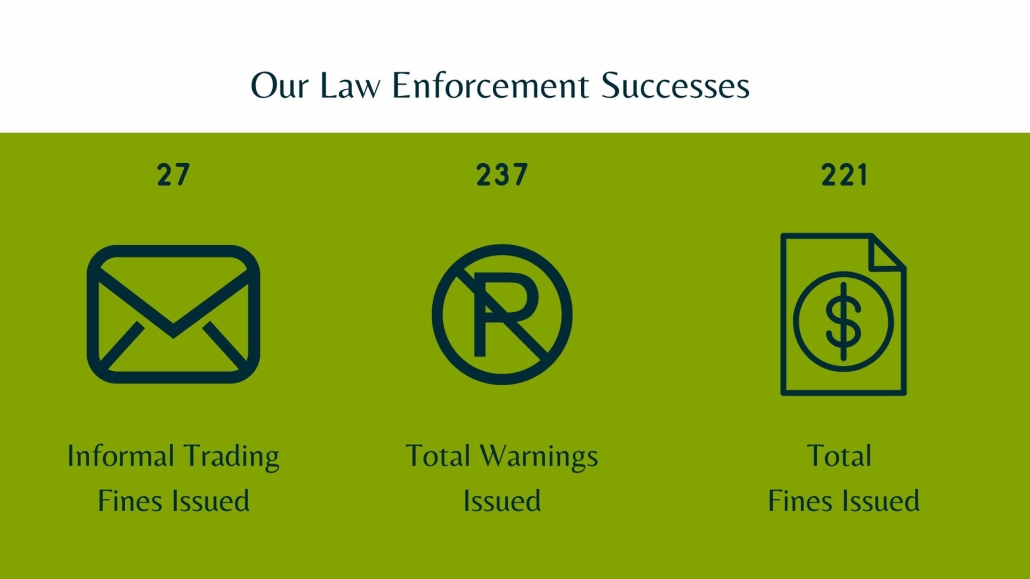
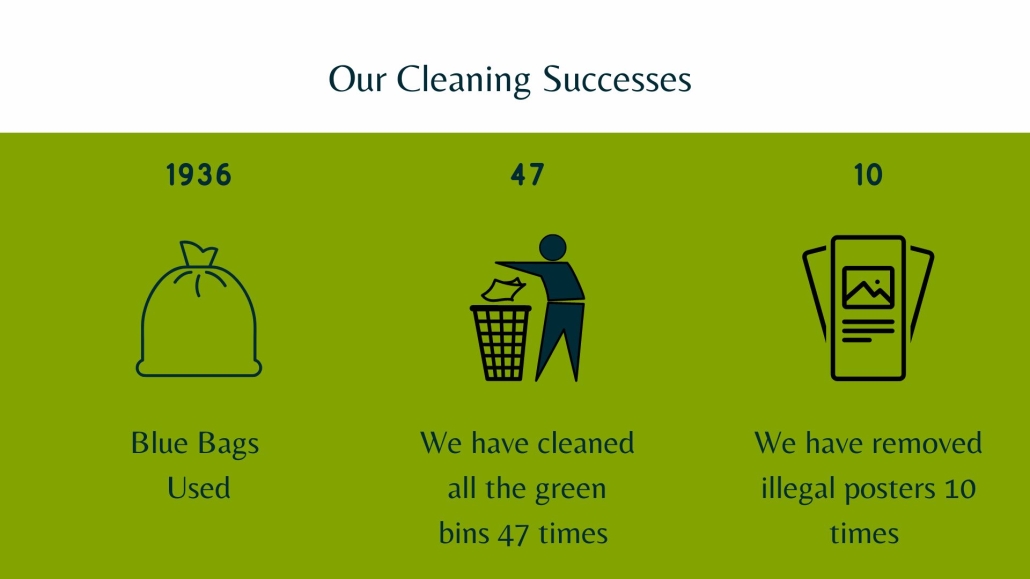
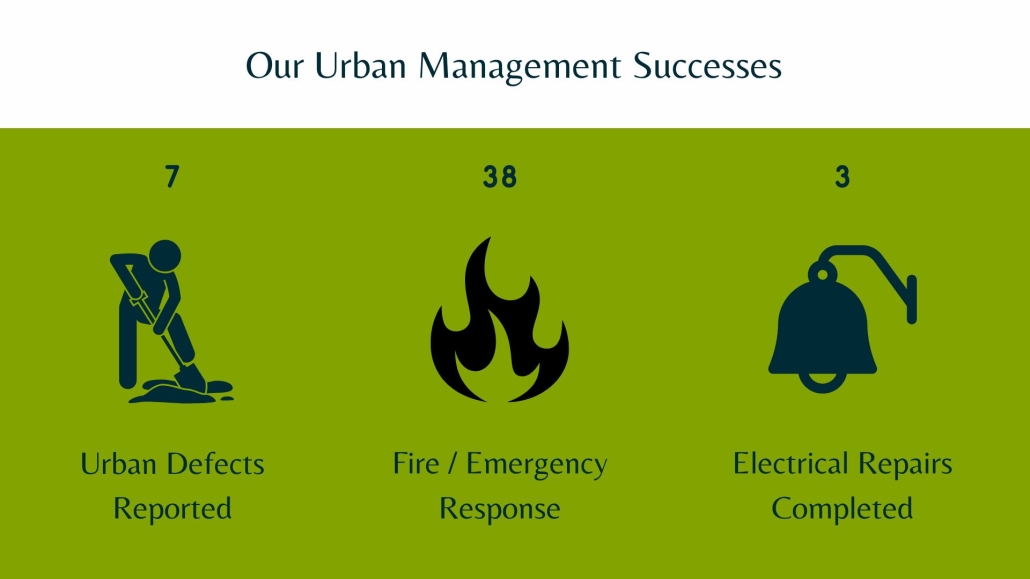
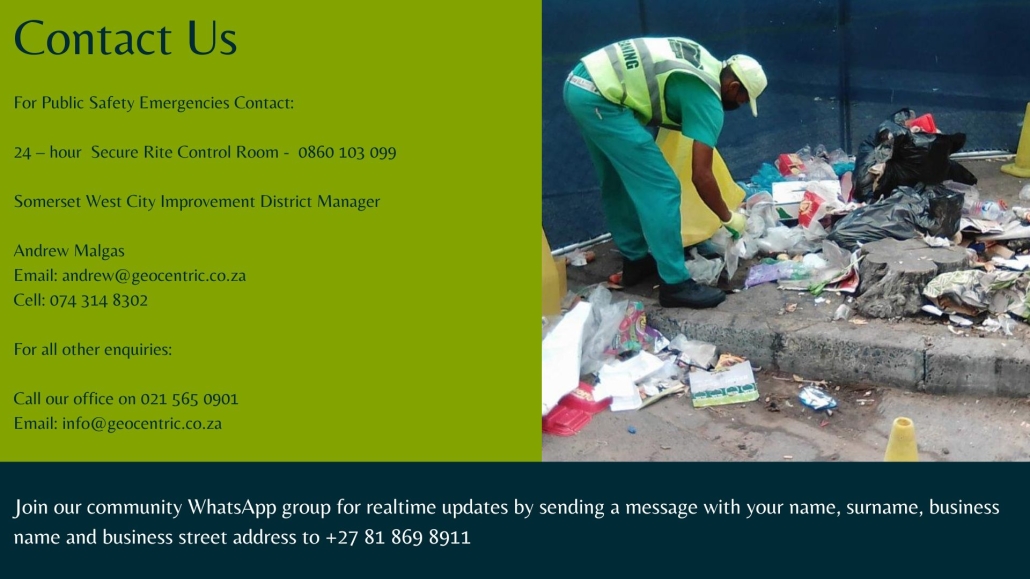
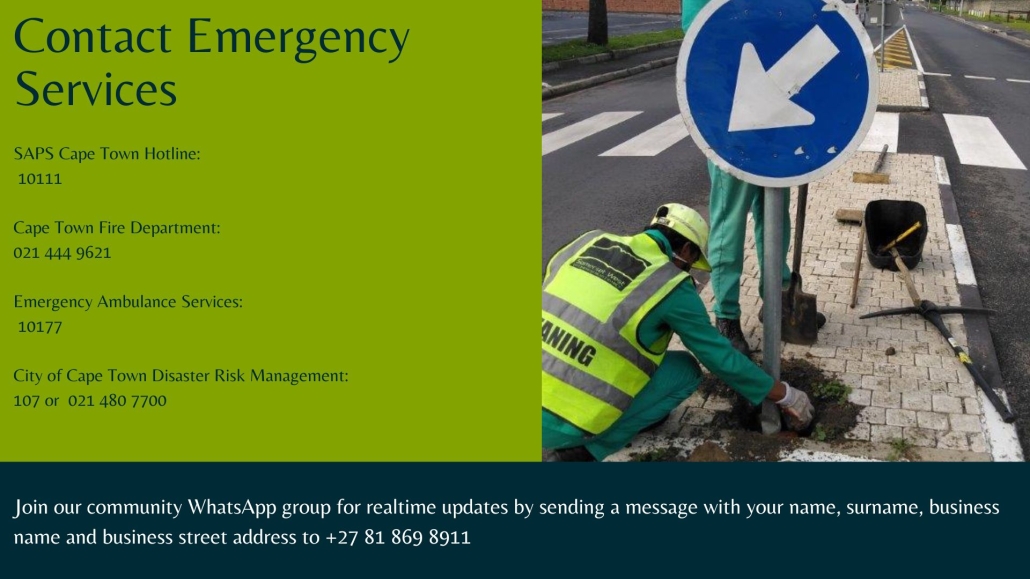
In the last few months, we’ve been working hard on our most important goals all to make our community a safe, rich urban environment where our community can thrive.
Here is what we have achieved so far:












The saying goes that ‘Great floods flow from simple sources’ and as we prepare for the harshness of the howling gales and pelting rain that make up Cape Town storms, we couldn’t agree more. Many of us are more conscious of the pivotal role that winter preparation plays in city management and what the lack of it can look like as demonstrated in the aftermath of the 2022 KZN floods.
“A combination of terrain challenges, insufficient or ill-maintained infrastructure and increased population density are the main contributors to flooding problems,” says Gene Lohrentz, CEO of urban management company Geocentric.
Here is how we are making sure we are ready to weather the storm:
Creating a clean eco and economically friendly environment:
Did you know that according to the Waste 2020 Market Intelligence Report, the Western Cape created between 138 278 and 162 138 tonnes of plastic waste in 2019? This much plastic equates to an estimated market value of between R473.8 and R631.7 million that is simply not being tapped into because of the manpower and infrastructure required to sort it at scale.
We help turn our trash into cash and create additional value out of waste products by bridging the gap between the litter on the street and the recycling plant. Cleaning and sorting as we go into our appropriate wheelie bins to be recycled directly from the drains and gutters of our streets.
But it is not only our drains. We also sort the content of the public litter bins. We service these bins daily and the plastic bottles, cups and cans are now removed and recycled where possible, instead of sending everything to a landfill.
New Weather Stations:
2022 marks the final rollout of our weather stations. These are vital in monitoring rainfall intensity, giving us information on potential flood areas so that we can preempt pumping them. In our busy districts, the weather also impacts how much accident monitoring we do and helps us ensure we have enough staff to keep infrastructure damage to a minimum and avoid road blockages and closures.
Taking an upstream approach to ocean conservation
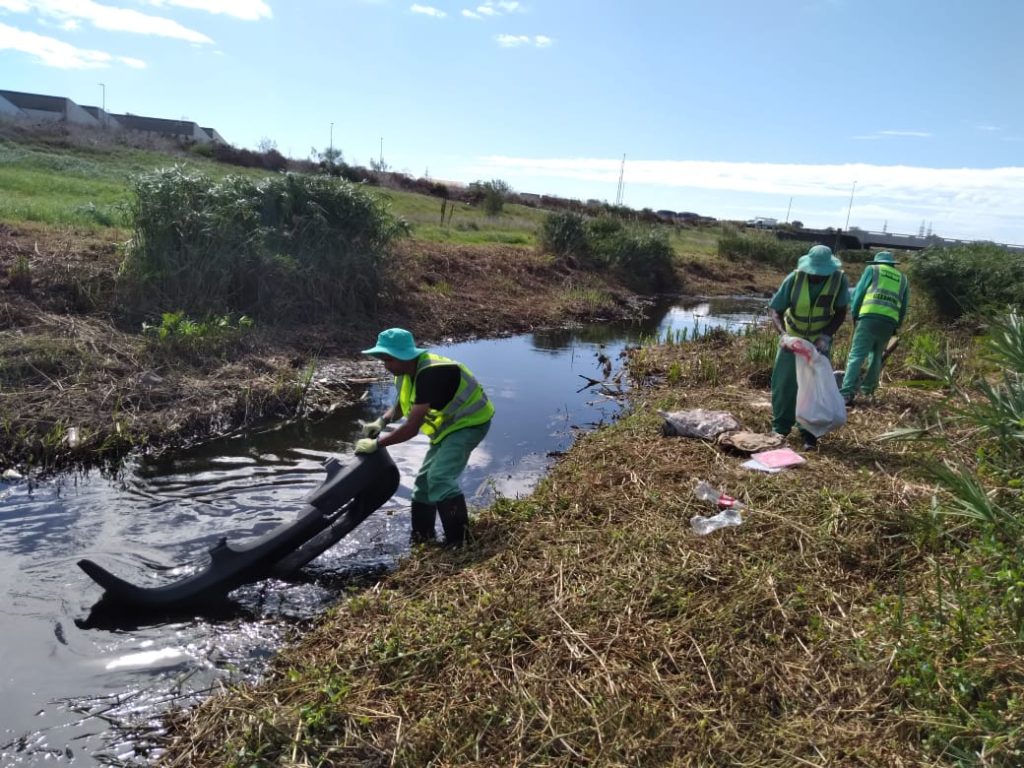
As part of our winter preparedness programme, we haul out all sorts of items from our waterways. This allows heavy rains to safely run along the contours of the land, into the rivers and eventually the sea.
We consistently intervene to keep our drainage system healthy and prevent waste from entering our stormwater runoff systems by methodically cleaning our drain catch pits and drain inlets. Just before winter, we ramp this service up as part of our winter preparedness programme.
Importantly this cleaning means heavy rain runs away from buildings and infrastructure. Preventing damage as much of the cost of flooding is due to the impact that items carried by the water have.
So what happens to all the litter we remove?
You guessed it, most of the litter removed is plastic bottles, glass bottles and cans which are separated and earmarked for recycling.
Trimming the Trees
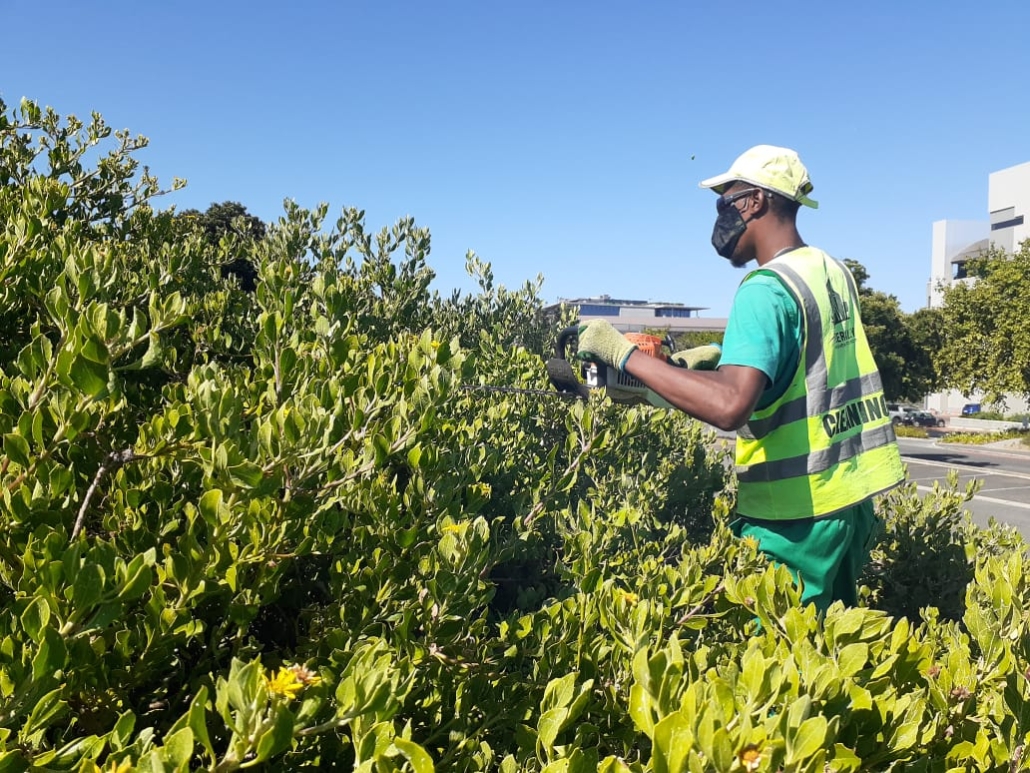
Every month we carefully trim the trees in our area and report major tree issues to the Recreation and Parks Department and relevant property owners. By professionally caring for our trees before our wind direction changes we prevent any dead, diseased or damaged branches from falling onto people, cars, electric fences, vehicles, and properties. It also serves to help clear any branches that may be blocking lights, alarm beams and security cameras to make sure criminal activity is kept to a minimum.
Here is what you can do to help us and yourself this winter
While no individual raindrop ever considers itself responsible for the flood we all have a responsibility to pull our weight. Our work forms an essential preventative measure that results in environmentally responsible and sustainable prevention of weather-related challenges such as traffic congestion, property damage, and power outages.
If you notice any weather-related issues please communicate to our Community WhatsApp Group below.
If you have any concerns to report, please contact one of the following numbers:
10111 – SAPS (South African Police Services)
107 – City of Cape Town Disaster Management
021 565 0900 – Geocentric Control Room
0800 872 201 – Give Dignity Initiative
As we approach the Easter weekend many families are looking forward to much needed time spent bonding over easter egg hunts and delicious lunches. However, as we all travel to our destinations, the days leading up to Easter weekend see many more motorists driving further in the first rains of our wet season.
As we set off in these conditions, we urge all motorists to take extreme caution and increase their awareness of the common causes of accidents and other road-users safety.
Here are our top tips for travelling safely this Easter weekend.
Check your vehicle.
Many accidents happen due to vehicles not reacting to a driver’s delayed response If you are travelling in heavy rain, use the brightest setting for your head and tail lights to improve visibility. Ensure that your wiper blades are in good condition as spray from other vehicles reduces visibility considerably so take extra care when overtaking or being overtaken. Braking is significantly impacted by the tread on your tyres so make sure you have sufficient tread. If you experience car trouble, turn on your hazard lights as bright as you can, set up additional warning signs if you have them in your car and pull off the road. Remain seated inside the car especially at night, as glare from your hazards may make it difficult for oncoming traffic to see you.
For more information on how to check your vehicle watch the Arrive Alice video below
Leave early and take breaks.
Due to the increasing amount of vehicles on the road drivers should leave earlier and be prepared for delays on the roads during poor weather conditions. This will help you avoid any abrupt acceleration, excessive speed and sudden steering movements which are the main culprits of accidents. Additionally, adjust your speed and following distance – five to seven seconds to break – to ensure that you can stop safely.
Drivers’ fatigue – caused by long-distance driving after a long day at work or a late night – is also a major contributor to fatal accidents. Emotional stress, lack of sleep, boredom and sun glare all cause fatigue so make sure to get a good seven hours of sleep before you travel. Additionally, for most of us, our sleep-wake cycle is set to be resting between 2 am and 6 am so try not to travel in these low light early hours of the morning.
If you are tired, stop and have a rest. Signs that you are too tired to drive include your eyes shutting, daydreaming, swerving, crankiness, restlessness and frequent yawning or eye rubbing.
Remain aware of other road users.
Last year, approximately 35% of the people who died on the roads over the Easter long weekend were pedestrians – making them the group most affected by accidents. Please remain aware of the sides of the road, particularly when travelling between towns as many people hitchhike to see their families. In areas of particular interest, there will also be signs alerting you to remain vigilant. Once you have spotted a pedestrian, slow down and give them lots of space until you have passed them fully as those who have consumed alcohol are likely to make dangerous decisions. If you can, plan to avoid driving in low light conditions as these combined with bad weather make other road users far more difficult to see.
Do not drink and drive – at all.
According to the new amendments in the National Road Traffic Act, anyone caught with blood that has an alcohol content of more than 0.05% will be arrested, charged with Driving Under the Influence of Liquor and held in custody until they can post bail if bail is not denied. Depending on your record, and the circumstances surrounding your arrest, you face the loss of your driver’s licence, a criminal record, a minimum fine of R2 000, a two-year prison sentence, or all of the above.
To put 0.05% into perspective any more than 350ml of beer, or a single tot of Brandy puts you over the limit with these levels of alcohol remaining in your system for up to eight hours after consumption.
Be aware of the signs of other drivers who may be drunk around you, such as weaving between lanes, accelerating and braking erratically or displaying delayed responses. If you think another driver is intoxicated, put more distance between yourselves and them as quickly and safely as you can. Please also report it by contacting the City’s Law Enforcement, Traffic and Coordination Department by calling 021 480 7700 or the National Traffic Call Centre on 086 140 0800.
By making sure we have road safe vehicles, taking our time getting where we are going, respecting the pedestrians on our roads and never getting on the roads intoxicated we ensure that all of us can enjoy safer roads this Easter.
City’s budget will do more to clean up our Mother City
City serious about diverting organic waste from landfills
Comment on the City’s draft Integrated Development Plan 2022 – 2027
Featured image credits : <a href=’https://www.freepik.com/photos/green-road’>Green road photo created by 4045 – www.freepik.com</a>
Mahatma Gandhi said that the true measure of any society can be found in how it treats its most vulnerable members. Unfortunately, as South Africans, we are desensitised in part to the poverty that permeates our ordinary lives. Used to the sight of the radical impact our ever-expanding gap between the haves and have nots creates. While many of us want to help, most are uneducated on the extraordinarily complex issues that create and sustain homelessness.
Due to our own basic understanding of these ever-evolving issues, it makes a greater difference when we partner with and give back to organisations equipped with the infrastructure, skill and experience to combat homelessness and help in a sustainable way.
“Handouts of cash given to desperate – often mentally ill people – add fuel to the same addictions that put them on the streets. Institutions such as our partners at The Haven Night Shelter have spent decades building, perfecting and maintaining the social infrastructure to efficiently maximise the impact of our donations and the results are inarguable,” says Jaco Wessels, COO of our appointed urban management company Geocentric.
Here are our top recommendations of non-profit organisations active in 2022 and how to contribute to their vision responsibly:
The Haven Night Shelter
Like us, they believe that there comes a stage in the downward path at which individuals cannot help themselves and are dedicated to being there to give them the lift they need. They help by making temporary shelter, rehabilitation opportunities, social welfare services, family reunification services, physical care and support available to adult people living on the streets. Helping to holistically ensure the reintegration of the homeless community into society.
We call often on their dedicated team of trained field workers to delicately encourage resistant people to come off the streets and get the person back home. The process is often a lengthy one and involves logging the person on the relevant City database of homeless people, trying to track down that person’s family and making contact, assisting with travel arrangements and following up with the family to check the individual is safe.
To get in touch:
Call them on +27 (21) 425 4700 or send an email to info@haven.org.za.
Visit their website here to find more information on how you can help.
Here are some tips on how you can help responsibly:
Since the ratio of people in need of help, and the help available, is so unbalanced many NGOs and NPOs are left with tight funds to run the businesses themselves. By donating your, time, skill, possessions or money in a responsible way you not only help make our district a safer space but provide our homeless residents with the chance to rekindle a sense of pride, community, and dignity.

Cape Town’s fire season occurs from November through to May which are our hottest, and driest months. Together with our beloved south-easterly “Cape Doctor” – which adores clearing our city of pollution – these arid conditions create ideal opportunities for wildfires to spark and quickly rage out of control.
From our homes and businesses to our beloved Table Mountain National Park, there are various organisations in place to manage fire safety and intervene both to avoid fires and to control them when they happen.
It’s true that fires are a part of the South African landscape and occur naturally in grasslands, woodlands, fynbos, and sometimes in indigenous forests. However, there has been a disastrous loss of natural diversity in our fynbos ecosystem and an invasion of Australian wattles, Eucalypts and Mediterranean pines. Now, our fires burn hotter for longer and each fire destroys more than the last. Meaning it’s more important now than ever to actively keep your home, family and business safe and to protect the life and value they hold.
Other interventions that you can implement on a larger scale include considering your construction materials if you are remodelling and supplementing them for fire-resistant alternatives. You should also ensure full continued compliance with all local and national fire safety codes and think about installing fire protection systems such as overhead sprinklers.
Unfortunately, despite all the precautions, a fire can happen to any size business at any time. That is why protecting your employees and your property should be a top priority. Following the above steps will help you avoid any fires breaking out and minimise fire-related damages. While there may be no such thing as truly “fireproof,” these guidelines are an excellent starting point for safeguarding your business.
Preventing fires in the Western Cape
City of Cape Town – Basic Household Fire Safety
Fire is Everyone’s Fight Toolkit of guidelines and posters with lesson plans
Sanparks – Fire management / Table Mountain National Park Fire Management Plan
24-hour emergencies: 107 (landline) or 021 480 7700 (cellphone)
General fire safety enquiries: 021 590 1971 / 021 590 1975
To report a fire : Hotline: 086 110 6417 or The City’s Regional Fire Control No: (021) 590 1900
As we charge into 2022, there is undeniable trepidation surrounding the new challenges and triumphs the year will bring. This year we will continue to create an urban ecosystem that is safe, accessible and inviting to all the workers, visitors and community members of our district. As in years before, we are unwavering in our commitment to the property and business owners of our area and intend to consolidate and elevate our services based on the successes of last year.
In 2022 we strive to:
We believe in the heart of our institution that the challenges we face are not insurmountable.
Together with the City of Cape Town, our partners, outreach initiatives and local business owners, we will continue to strive towards reinvigorating our urban environment. Ultimately, together we can create a stable, safe, clean area that is prosperous for our community both economically and socially.
Headlines from the City
The City of Cape Town warns to be aware of scammers posing as electricity officials to gain access to your wallet and home. All officials will have an identification card with the City logo, with their name and surname and a photo. If you have any doubts call the COCT on 0860 103 089 to confirm their ID and work order number.
The City of Cape Town urges their suppliers to be cautious of fake Request for Quotation (RFQ) emails sent to them, as if it is being sent from the City. Please report any suspicious emails to the City for further investigation.
Struggling to pay your rates and taxes? The City of Cape Town has a wide range of financial relief options available. To learn more, click here.
After a challenging 2021, filled with great uncertainty and change globally, many of us are looking forward to wrapping things up for a well deserved holiday with family and friends. Ensuring that your property is secure and your business protected is the best Christmas gift you can give yourself and will give you the peace of mind that will allow you to relax and recuperate.
Here are our top tips to keep your property safe so you can enjoy the merry season:
Prevention is better than cure, and we urge all property owners to make every effort to properly prepare for the coming weeks. After a challenging year for all, we sincerely hope that you can rest easy in the knowledge that we will be working through the festive season to keep your homes and businesses safe.
To share your story with us and stand a chance to be featured in one of our future newsletters email us at media@geocentric.co.za.
If you have any safety concerns to share, please contact one of the following numbers:
· 10111 – SAPS (South African Police Services)
· 107 – City of Cape Town Disaster Management
· 0860 103 099 – Secure Rite Control Room
Please use the City’s Customer Services call centre to request a service or query your account. You will receive a reference number that you can use to track the request. The best option is to use the City’s website www.capetown.gov.za and select ‘Service Requests’ on the home page, then follow instructions and capture each location as a separate request. The service selections and location determine to which department the request is routed by the system.
You can also send an email to the call centre contactus@capetown.gov.za for each request stating the request, location, complainant’s name, complainant’s contact details and any additional comments.
You can also SMS 31373 (Maximum 160 characters) OR Call 086 010 3089
To report
Street People
Illegal dumping
Traffic or Taxi issues
Drugs
Illegal Activity
Emergency
Water and Sanitation related complaints (Burst pipe, water outage, blocked drain, etc.)
Faulty water management devices
Water restriction violation
Solid Waste Department
Electricity
Faults and enquiries
We believe that you are an expert in your area and have seen the positive change we can make first-hand. You know better than anyone, where our precious resources are best spent and we value your contribution in helping us plan for future projects.
The legislative structure governing much of our work in your area is up for amendment. We hope that the proposed changes of making the processes of starting and running a CID more structured will improve the efficiency of CIDs citywide.
Your suggestions on the proposed amendments to the CID by-law and City improvement district policy can be submitted online here, emailed to CityImprovement.Districts@capetown.gov.za or written to, City of Cape Town, PO Box 298, Cape Town 8000
Comments and objections may be submitted from 16 August to 15 September 2021.
Bestselling entrepreneurial author Jim Rohn once said, “The good things we build – end up building us”. In the Somerset West City Improvement District (SWCID), our streets are no utopia, but at SWCID we are committed to collaboratively improving our community. We believe that improvement is contagious – which is why we have initiated our Facade Improvement Programme (FIP). The FIP is specifically designed to encourage businesses, like yours, to invest in the curb appeal of your premises. Knowing that we at the Somerset West City Improvement District are working to protect your property from vandalism and malicious degradation.
The FIP is part of an investment journey that we as business owners, community members, municipal bodies and the SWCID walk. Ultimately, we work to repair urban decay and improve the socio-economic environment of the Somerset West City Improvement District.
Our Facade Improvement Programme is a tool for inner-city revitalisation based on the formal processes successfully used in American cities. The protocol is well documented to restore citizens local pride, create a unique urban character, and repair the functionality of an urban area. Studies by the University of Wisconsin found that even small outlays have a positive impact on landlords, business owners and employees.
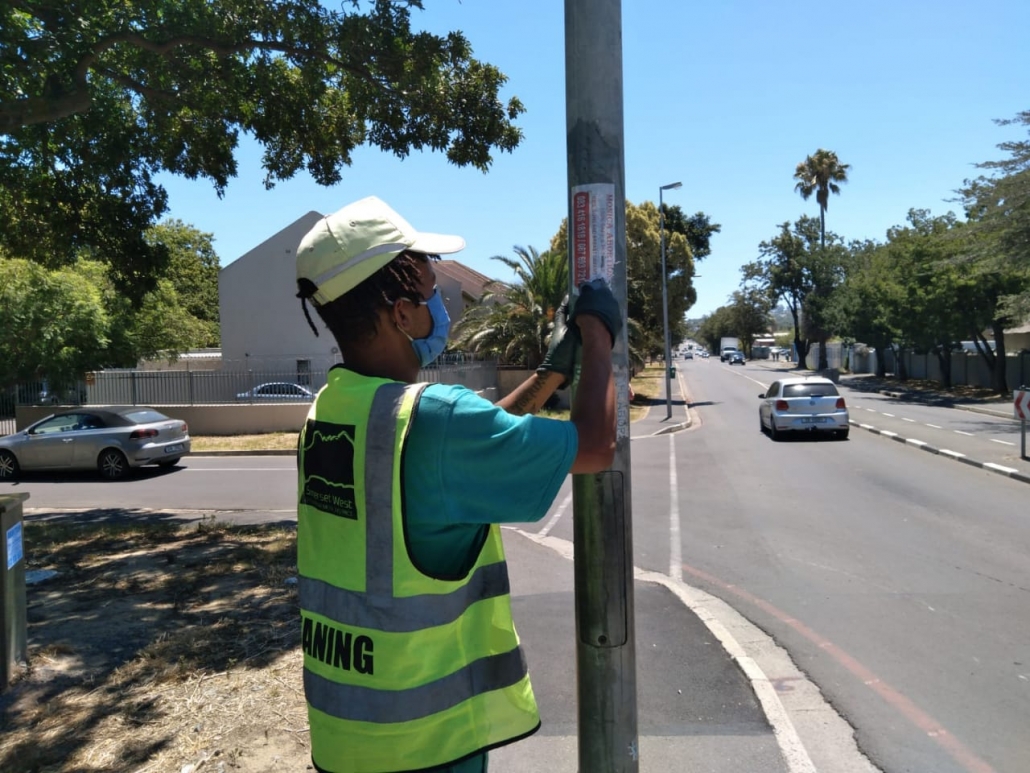
It’s clear that facade improvements are a catalyst for many positive changes. By attracting new customers and tenants they help inject more capital into our community thereby improving the financial microclimate of Somerset West City Improvement District. Not to mention, increasing the overall employee engagement and morale by creating a positive working environment.
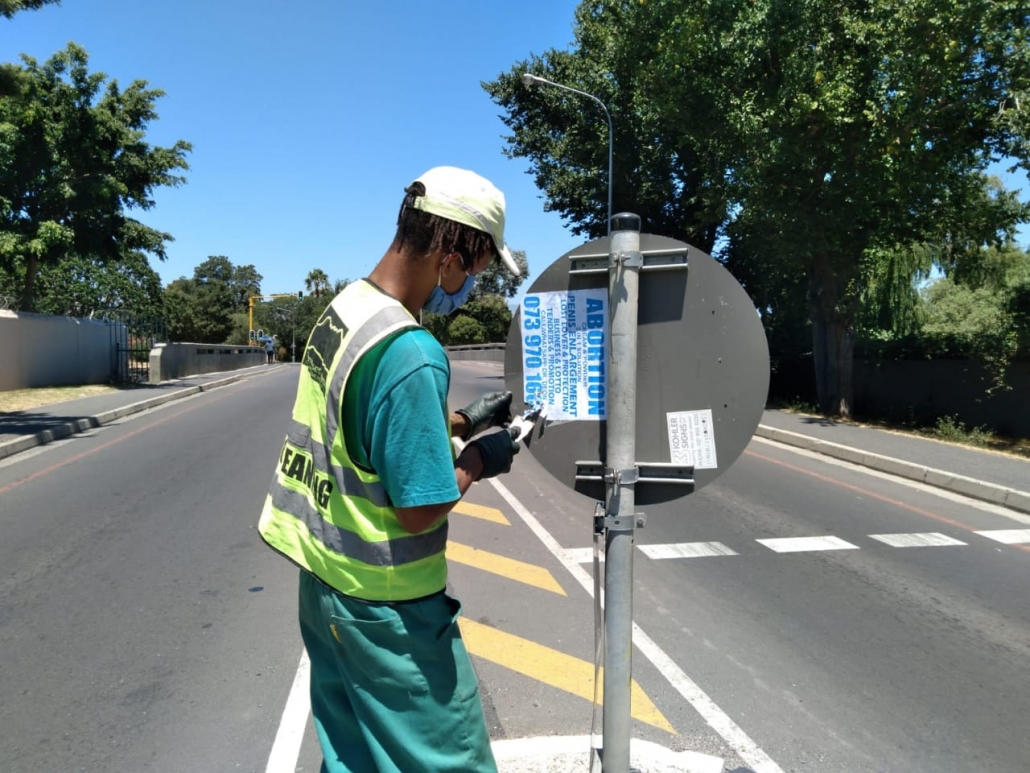
Through the Facade Improvement Programme, we work tirelessly to protect your investment from being damaged and pride ourselves on providing swift and efficient intervention should a challenge arise. Ultimately, we want to help our community become a clean, healthy and safe place to work, live and thrive.
We would love to see what you are working on so please share your #goodnews!
You can contact us and share your story about how you are improving our area via comms@swcid.co.za
If you have any concerns to report, please contact one of the following numbers:
The Geocentric Urban Management Trolley Project was initiated in 2017.
The aim of the project is to provide urban cleaning and maintenance teams with a platform to improve their daily tasks, assist with moving of equipment and tools and enable recycling while performing their tasks.
A few design considerations were introduced into the design of the trolley including
To achieve some of these design principles, Geocentric looked at simple solutions from other designs, for example, the stair-climbing suitcases used by so many travellers. By scaling up the design for the urban management trolleys, we could produce a sidewalk and pavement climbing trolley where the urban management worker needs minimum effort to get onto and off pavements to perform their duties.
(See photos of step 1, 2 and 3 illustrating this concept.)
The trolleys were also designed to be pushed from any side with key tools located in the middle so that it is in fact easy to use it for a two-man team operation. On each side of the trolley a plastic tool box allows storage for small tools.
Recyclables like tin cans, glass and plastic bottles are collected by the urban management workers throughout the day as they clean the streets and public spaces and at the end of each day they separate the items into baskets whereafter Geocentric recycles the items.
This is another way in which we make CID operations more sustainable and environmentally friendly as we prevent a vast amount of waste from simply going to landfills.
Geocentric have rolled out these trollies in the Elsies River and Beaconvale City Improvement Districts and plan to roll them out to all the other CIDs under Geocentric management through the course of 2018.
Call: 021 565 0901 / 074 314 8302
